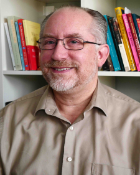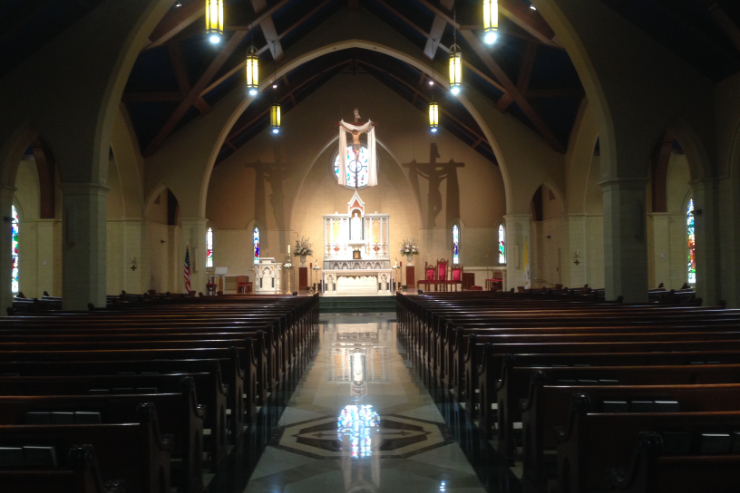
This week’s poem in the Catholic Poetry Room is by Jeffrey Essmann.
The Seven Thirty
The sacristan is back from surgery
and moves from task to task: the candles lit;
the holy things all placed accordingly;
the key into the tabernacle fit.
The missal and the book of Holy Writ
he handles gingerly; the bread and wine
as if with shadows of the infinite
their substance did already subtly shine.
His office quit, he eyes back by a shrine
a regular whose prayer he interdicts
and in the finest detail he depicts
the saga of his medical decline.
The woman listens kindly, for her part,
and lights her candle to the Sacred Heart.
Each with his pound of pain, his dram of grace,
and all the rust a human life accrues,
the new arrivals take their chosen place
among the sparsely populated pews:
the ones whose morning prayer is like a bruise
they’ve brushed against, its throbbings manifold;
poor souls whose God holds all their IOUs;
the lonely, muddled, dumbstruck, old.
And me, I can’t quite seem to get ahold
of what this morning’s brought me to my knees,
and numbly render God my vague unease
at being in the body he’s ensouled.
I proffer him my most left-handed praise:
a sacrifice of questionable blaze.
Yet as the priest intones the antiphon,
a subtle shift transmutes the very air:
our drowsy souls turn toward that echelon
of mystery abiding deep somewhere
within the ancient rhythm of the prayer.
The Word of God enweaves its precious thread
of grace through all those hearts that somehow share
the empty fullness where the Word was bred.
Then comes the moment of our holy dread:
the supper strange of long ago’s invoked
(all heaven’s power braced to be unyoked…)
and quietly the priest picks up the bread…
And all our bodies slowly he lifts up,
as all our blood lies glistening in the cup.
Jeffrey Essmann’s poetry has appeared in America Magazine, Dappled Things, St. Austin Review, The Road Not Taken, and in various venues of the Benedictine monastery with which he is an oblate.













